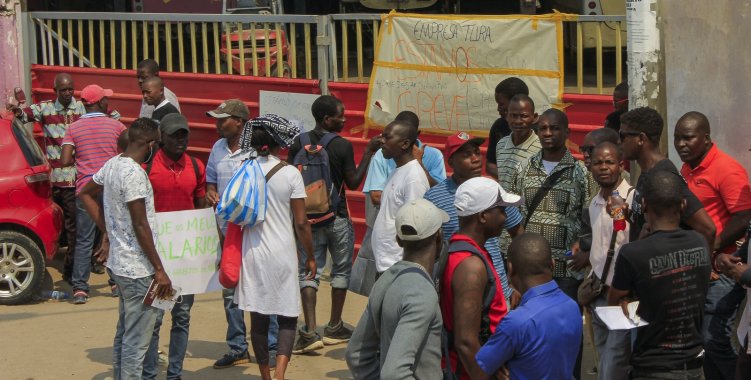The three union centrals unanimously approved an interpolated general strike beginning on March 20th and which will take place in three phases, with a first period of three days between March 20th and 22nd, another seven days between April 22nd and 30th and another 11 days between June 3rd and 14th, 2024.
After listening to workers, the Central Geral de Sindicatos Independentes e Livres de Angola (CGSILA), União Nacional dos Trabalhadores Angolanos - Confederação Sindical (UNTA-CS) and Força Sindical - Central Sindical (FS-CS) concluded that the Government did not responded satisfactorily to their demands – increasing the minimum wage, increasing civil service salaries, updating subsidies and reducing taxes – and decided, in a general assembly, to move towards a total strike.
The trade unions began by demanding an increase in the minimum wage from the current 32,000 kwanzas, to 245,000 kwanzas, a "flexible" proposal, meanwhile, to 100,000 kwanzas, a reduction in the Labor Income Tax to 15 percent and a representative on the board of directors of the National Institute of Social Security (INSS), "demands" that they say were rejected by the authorities in six rounds of negotiations.
The trade unions also demand an adjustment to the Civil Service salary, in the order of 250 percent, and a reduction in the Labor Income Tax (IRT) by 10 percent.
The executive decided to propose a minimum wage depending on the size of the company, namely 48,000 kwanzas for small companies, 70,000 kwanzas for medium-sized companies and 96,000 kwanzas for large companies, which was rejected by the unions.
The unions guarantee that minimum services will be met and are available to continue negotiations.
The MPLA expressed solidarity with the workers, but contests the application of a salary scale that poses problems to the solvency of the State and families, warning of the increase in unemployment.
The party that supports the executive defends a fractional salary increase over the five-year period of the current term with increases of 25 percent per year.







